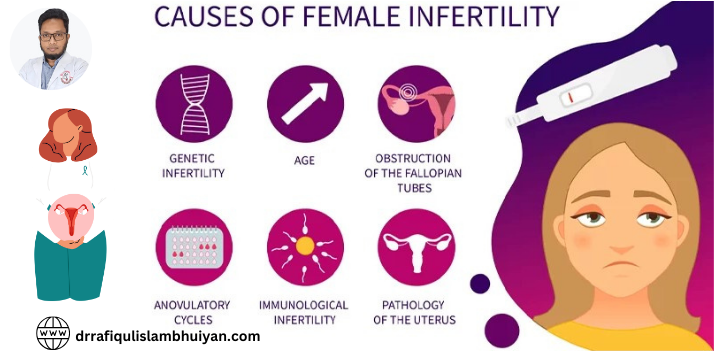ঠিকানা
বাংলাদেশ ফার্টিলিটি হাসপাতাল লিঃ ই ব্লক, মেইন রোড, বনশ্রী, রামপুরা ঢাকা ( বনশ্রী আইডিয়াল স্কুল থেকে ১০০ মিটার পূর্বে)
Book an appointment
০১৯৭৫০০৯৭৯৬
বাংলাদেশ ফার্টিলিটি হাসপাতাল লিঃ ই ব্লক, মেইন রোড, বনশ্রী, রামপুরা ঢাকা ( বনশ্রী আইডিয়াল স্কুল থেকে ১০০ মিটার পূর্বে)
০১৯৭৫০০৯৭৯৬
বাংলাদেশ ফার্টিলিটি হাসপাতাল লিঃ ই ব্লক, মেইন রোড, বনশ্রী, রামপুরা ঢাকা ( বনশ্রী আইডিয়াল স্কুল থেকে ১০০ মিটার পূর্বে)
০১৯৭৫০০৯৭৯৬

Female infertility can result from various factors that affect the reproductive system, ovulation, and the ability to conceive. Here are some common causes of female infertility:
It’s important for couples experiencing fertility issues to seek medical evaluation and consultation with a reproductive endocrinologist or fertility specialist. Fertility treatments such as in vitro fertilization (IVF), intrauterine insemination (IUI), or medication to stimulate ovulation may be recommended based on the specific cause of infertility.
©2024.Dr. Md Rafiqul Islam Bhuiyan. All Rights Reserved.